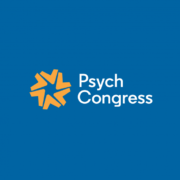Assessing Cognitive Symptoms in Schizophrenia
Cognitive dysfunction is a core feature of schizophrenia, wrote Christopher Bowie and Philip Harvey in their study “Cognitive deficits and functional outcome in schizophrenia.”
“Deficits are moderate to severe across several domains, including attention, working memory, verbal learning and memory, and executive functions. These deficits pre-date the onset of frank psychosis and are stable throughout the course of the illness in most patients.”
It is now widely recognized that these deficits are among the best predictors of functional outcomes in schizophrenia. In a recent presentation for Psych Congress Network, Leslie Citrome, MD, MPH, clinical professor of psychiatry and behavioral sciences at New York Medical College, Valhalla, NY, discussed the significance of cognition in schizophrenia.
“We’ve known for quite some time about the positive symptoms of schizophrenia, such as delusions and hallucinations, and the negative symptoms of schizophrenia, such as the lack of motivation, lack of interest, and difficulty in expressing emotion,” Dr. Citrome explained.
“We’ve also learned to acknowledge the existence of cognitive dysfunction. Problems, for example, with verbal fluency, with paying attention, with problem-solving. At the same time, we’ve also paid more attention to the affective symptoms of schizophrenia. These overlap somewhat with negative symptoms.”
Cognitive impairment is quite common in people with schizophrenia. This has been confirmed by a number of studies. For example, in a 2019 study published in the American Journal of Psychiatry, Zanelli, Mollon, et al. found that patients with schizophrenia and other psychoses had a cognitive decline in memory, verbal learning, and vocabulary over a 10-year period.
“Cognitive impairment occurs in first-episode and chronic schizophrenia,” said Dr. Citrome. “We can observe that people with schizophrenia have a lower degree of cognitive abilities, relative to the general population, right from the beginning.”
Cognitive dysfunction can serve as an early warning sign. “This can be apparent at the very first episode. In fact, can predate the first episode of psychosis,” said Citrome. “People who are in the prodrome, or even in their childhood or adolescence, can exhibit some degree of cognitive impairment.”
It’s not always easy to detect cognitive impairment associated with schizophrenia. In his presentation, Citrome explained some of the diagnostic tools. “Cognition in clinical trials with schizophrenia can be formally assessed using neuropsychological testing. The standard today is to use a battery of tests called the MATRICS Consensus Cognitive Battery or MCCB.”
The MCCB consists of 10 tests that include testing the speed of processing, attention or vigilance, working memory, verbal learning, visual learning, reasoning and problem-solving, and social cognition.
Measuring cognition has an important purpose. “Cognitive deficits do predict functional outcomes,” explained Dr. Citrome. Testing cognition “helps us predict how well someone will function.”
Current research appears to indicate that the existence of positive schizophrenia symptoms may not necessarily impair functioning, but impairment of cognition can lead to impairment in functioning, and negative symptoms may impair functioning.
That means that “hallucinations and delusions by themselves aren’t going to be the determinants whether someone can work or have social relationships,” said Citrome. “It’s going to be negative symptoms and cognitive impairment.”
The Colorado Recovery treatment model emphasizes the experience of empowerment, the strengthening of social relationships, and overall support for people with schizophrenia to improve all aspects of their lives. “Recovery from mental illness is about more than just getting rid of the symptoms and staying out of hospital. It is about regaining a sense of identity, belonging, and meaning in life,” said the late Richard Warner, M.D. and founder of Colorado Recovery.
Our treatment facility provides the services needed to address schizophrenia, bipolar disorder, and other serious mental illnesses which are specific to each individual. Call us at 720-218-4068 to discuss treatment options for you or the person you would like to help.





